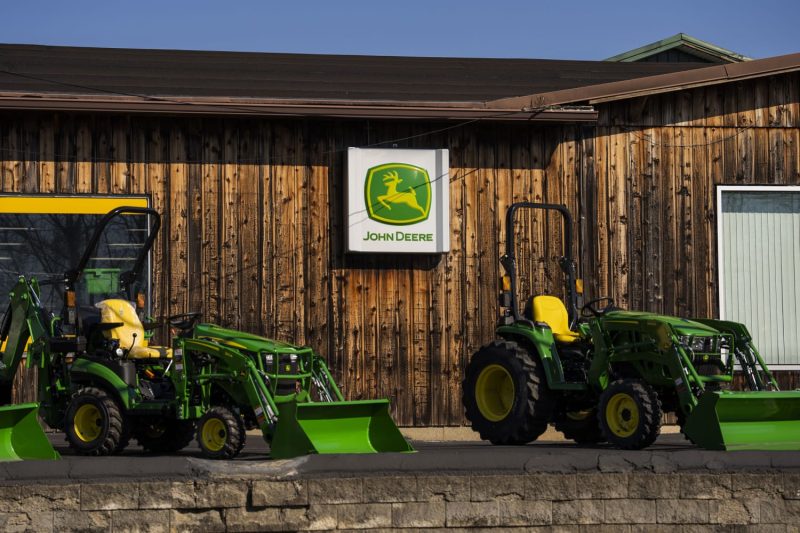In recent news, agricultural machinery giant John Deere has made the decision to withdraw their sponsorships from various Pride festivals following a campaign orchestrated by right-wing groups on online platforms. This move has sparked debate and controversy among various stakeholders, raising questions about corporate responsibility, LGBTQ+ inclusivity, and the influence of online pressure campaigns on corporate decision-making.
The decision by John Deere to distance itself from Pride festival sponsorships comes in the wake of a coordinated effort by conservative and right-wing organizations to pressure the company into discontinuing its support for events celebrating LGBTQ+ pride. This move highlights the power and impact of online advocacy campaigns in shaping corporate behavior and decision-making processes.
Critics of John Deere’s decision argue that the company is bowing to pressure from groups that do not support LGBTQ+ rights and inclusivity. By withdrawing their sponsorships from Pride festivals, John Deere is seen as prioritizing the interests of a conservative minority over the values of diversity, equality, and inclusivity. This has led to accusations of pandering to a particular ideological group at the expense of alienating LGBTQ+ customers, employees, and allies.
On the other hand, supporters of John Deere’s decision point to the company’s right to make independent choices regarding its branding and sponsorship activities. They argue that corporations have the freedom to align their marketing strategies with their target demographics and values, even if this means withdrawing support from certain events or initiatives. In this view, John Deere’s decision to end Pride festival sponsorships is a legitimate business move rather than a reflection of anti-LGBTQ+ sentiment.
The episode involving John Deere and the pressure campaign from right-wing groups underscores the complex interplay between corporate ethics, public perception, and social responsibility. Companies are increasingly being held accountable for their actions, not only in terms of profit-making but also in terms of their stance on social issues and values. In today’s interconnected world, the influence of online activism and advocacy cannot be underestimated, as shown by the impact it has had on John Deere’s sponsorship decisions.
Moving forward, it remains to be seen how John Deere’s withdrawal from Pride festival sponsorships will affect its reputation, customer base, and relationships with the LGBTQ+ community. The case serves as a reminder that corporate decisions can have far-reaching consequences, both positive and negative, and that transparency, dialogue, and inclusivity are crucial for navigating complex social issues in a globalized and diverse society.




























